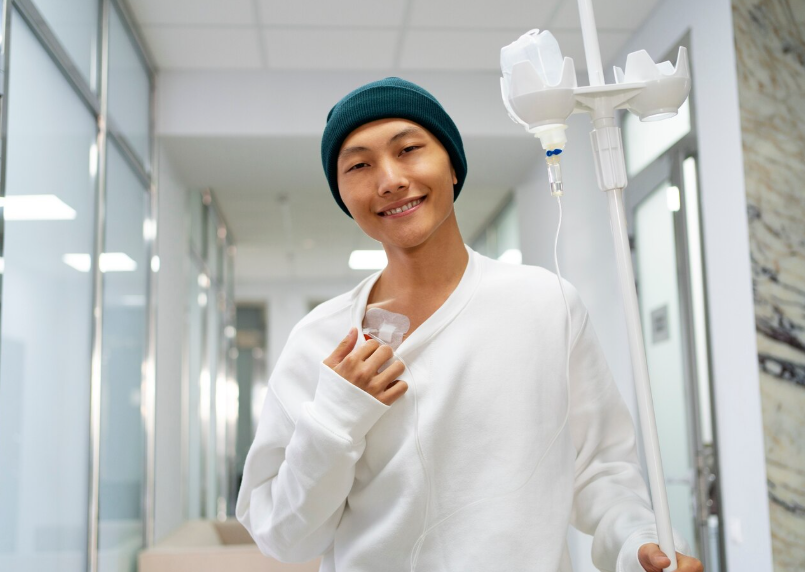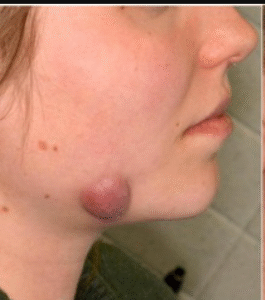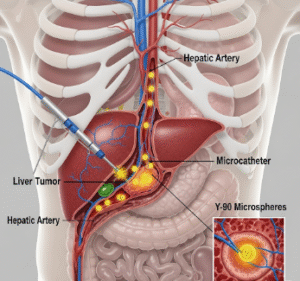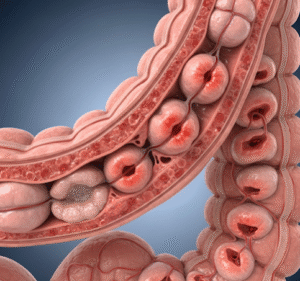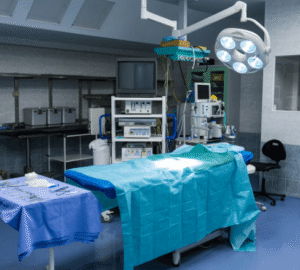Overview
Cancer is a group of diseases characterized by uncontrolled growth and spread of abnormal cells. In South Korea, cancer is a leading cause of mortality, but advancements in early detection, treatment, and research have significantly improved survival rates. Various types of cancer affect different organs, and personalized treatment plans are available in Korean healthcare facilities.
What is Cancer?
Cancer occurs when normal cells undergo genetic mutations that disrupt their growth, division, and death cycles. These abnormal cells can form tumors, invade surrounding tissues, or metastasize (spread) to other parts of the body. Cancer can be classified as solid tumors (e.g., breast, lung, liver) or hematologic cancers (e.g., leukemia, lymphoma).
Symptoms
Symptoms vary depending on the cancer type and location but may include:
- Unexplained weight loss
- Persistent fatigue
- Pain in affected areas
- Changes in skin appearance or lesions
- Persistent cough or difficulty breathing
- Unusual bleeding or discharge
- Difficulty swallowing or persistent indigestion
Causes
- Genetic mutations (inherited or acquired)
- Environmental factors (radiation, pollution)
- Lifestyle factors (tobacco, alcohol, poor diet)
- Chronic infections (HPV, Hepatitis B/C, H. pylori)
- Hormonal imbalances
Risk Factors
- Age (risk increases with age)
- Family history of cancer
- Smoking or alcohol consumption
- Obesity and poor diet
- Exposure to carcinogens at work or environment
- Chronic infections or inflammation
Complications
- Metastasis to vital organs
- Organ failure due to tumor burden
- Severe pain and fatigue
- Malnutrition and immune system compromise
- Psychological distress, depression, and anxiety
- Side effects from treatments like chemotherapy and radiation
Prevention
- Avoid tobacco and limit alcohol consumption
- Maintain a healthy weight and balanced diet
- Exercise regularly
- Vaccinations against cancer-related viruses (HPV, Hepatitis B)
- Regular screenings for common cancers (breast, colorectal, cervical, prostate)
- Minimize exposure to carcinogens and pollutants
Treatment Options in Korea
South Korea provides advanced and multidisciplinary cancer care across public and private hospitals:
- Diagnosis
- Blood tests and tumor markers
- Imaging: CT, MRI, PET scans, ultrasound
- Biopsy for histological confirmation
- Genetic testing for targeted therapies
- Surgical Intervention
- Tumor removal or organ resection
- Minimally invasive laparoscopic and robotic surgeries
- Reconstructive surgeries if required
- Medication & Therapies
- Chemotherapy to target rapidly dividing cells
- Targeted therapy based on tumor genetics
- Hormonal therapy for hormone-sensitive cancers
- Immunotherapy to enhance the body’s immune response
- Radiation Therapy
- External beam radiation
- Brachytherapy for localized tumors
- Supportive & Palliative Care
- Pain and symptom management
- Nutritional guidance
- Psychological counseling
- Hospice and end-of-life care

